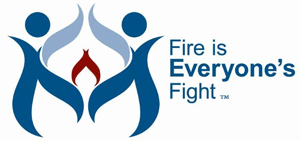By: Robert Avsec, Executive Fire Officer
MINNEAPOLIS, Oct. 19, 2015–The Minnesota Court of Appeals rendered a decision this past week on a legal challenge brought by the Builders Association of the Twin Cities. The decision overturns Minnesota Department of Labor and Industry requirement for enhanced fire & life safety protection with fire sprinklers in homes greater than 4500 square feet. The court said this 4500 square foot provision was an arbitrary figure while the energy code was upheld because it applies across the board.
See: Minnesota Court Upholds Energy: Oust Fire Safety
A disappointing outcome for sure. But another story that should bolster our resolve to continue fighting the special  interest groups who continue to put profits over life safety for citizens and the firefighters in communities across the USA.
interest groups who continue to put profits over life safety for citizens and the firefighters in communities across the USA.
Personally, I think that we need to change our strategic approach to the pubic message about residential fire sprinklers. Our typical message goes something like this: “A residential fire sprinkler system can save your life” or “Fire sprinklers save lives.” Both of those statements and most of the others that we use when writing and speaking about residential fire sprinklers are written in the passive voice.
 You remember passive voice and active voice from grammar class in school, right? In the passive voice the “actor” is at the end of the action; in active voice the “actor” is up front in the sentence.
You remember passive voice and active voice from grammar class in school, right? In the passive voice the “actor” is at the end of the action; in active voice the “actor” is up front in the sentence.
I prefer the M.A.D.D. (Mothers Against Drunk Drivers) approach—and more recently that of the organization Moms Demand Action for Gun Sense in America—of a more active voice to our message. Try these on for size:
“Do your children go to sleep in a home without a fire sprinkler system? Why? Would you put them in the trunk of your car to take them to school?”
“People who live in a home protected by a residential fire sprinkler system 24/7/365 never worry about going to bed and never waking up because of a fire. How do you sleep at night in a home without one?”
“People who live in a home protected by a residential fire sprinkler system 24/7/365 never worry about losing a loved one to a preventable fire or spending years getting medical treatment for burns or living out of a hotel room for 6 months while their home is rebuilt.”
We’ve got to stop ignoring the “elephant in the room” when it comes to fires in the United States, particularly in  residential properties: we live in a culture that accepts that fires happen, fires kill and injure people, and fires destroy property.
residential properties: we live in a culture that accepts that fires happen, fires kill and injure people, and fires destroy property.
These fires are not accidental and unforeseen events. Fires are preventable as upward of 75 percent of those fires (in homes) are caused by improper adult human behavior. Builders, developers, and government officials who continue to defy common sense by resisting any efforts to get a residential sprinkler system in every new home built are displaying a similar improper behavior, a behavior that does nothing but support our culture’s acceptance of fire and its devastating consequences.
 Fire & EMS Leader Pro The job of old firefighters is to teach young firefighters how to become old firefighters!
Fire & EMS Leader Pro The job of old firefighters is to teach young firefighters how to become old firefighters!